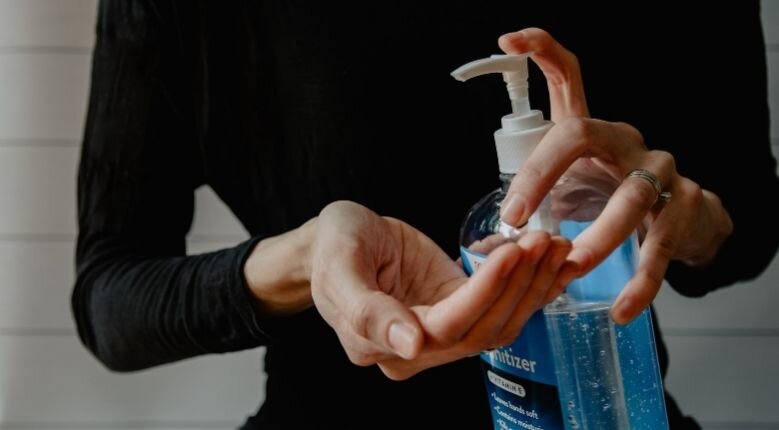The pursuit of wellness, whilst holding varying degrees of importance or definitions for people, ultimately means just one thing: finding the right balance between all aspects of holistic health. But sometimes, in our quest to achieve that balance, we have to be wary that over-exertion or excessive obsession to get to these goals may also yield negative effects. Here’s how to recognise and manage them.
Exercise addiction

Exercise addiction is an uncontrollable need or desire to undergo fitness practices even if it results in injuries and more. (Photo from: Jonathan Borba via Unsplash)
Having a consistent fitness routine is something that we all aspire to have. In fact, it’s an overused new year’s resolution for most people, showing just how much #FitnessGoals mean, especially in today’s wellness-conscious society. However, there is such a thing called ‘exercise addiction’, which is an uncontrollable need or desire to undergo fitness practices even if it results in injuries, body image issues or eating disorders.
Causes: Since exercise helps release ‘happy hormones’ such as dopamine and endorphins, it tends to have very similar effects related to drug use (a.k.a. getting high or feeling hazy). Since the feeling of ‘happiness’ or ‘satisfaction’ the act triggers go away after exercising, those who feel addicted to its sensations develop a constant need to work out to fulfil the body’s need for it.
How to manage it: Make sure you limit your fitness sessions to a reasonable amount of time per day or per week. Balance your routine with proper diet as well as a sufficient amount of downtime, to avoid over-stretching yourself physically and mentally. If you can, find a fitness and pace buddy who can make the activity feel more fun but not obligatory.
Orthorexia a.k.a. obsession with ‘healthy eating’

Orthorexia is the fixation over proper eating to the point that it becomes detrimental to one's health. (Photo from: Oleg Magni via Pexels)
Cheat days serve as some sort of an inside joke when talking about healthy eating. But you’d be surprised how taking constant breaks here and there from your otherwise curated diet might save you from a thing called orthorexia. Not to be confused with anorexia, orthorexia is the fixation over ‘proper eating’ to the point that it actually becomes detrimental to one’s health. Some of its signs include checking nutritional labels obsessively and not eating anything beyond what they consider their personal standard, getting stressed over food that they deem ‘unhealthy’ or ‘not pure’ and more.
Causes: While there is still sparse information about how or why orthorexia actually develops, it is said to root from initial goals to eat well and healthy until it eventually blows out of proportion.
How to manage it: Healthy eating is definitely encouraged for sure, but if you feel like you’d like to be more informed on how to eat right, consulting an expert is better than just going off and creating restrictions that are not backed by proper data. Always remember, anything excessive, no matter how ‘healthy’ something is labelled, is not advisable at all.
Excessive sleeping

Oversleeping can cause certain fluids that might trigger artery or nerve blockage that may lead to heart disease or Alzhiemer's. (Photo from Yuris Alhumaydy via Unsplash)
Getting well-rested sleep, especially with our "go-go-go" mentality today, almost seems like an impossible dream. So when we get the chance to actually catch some proper Z's, the tendency to go overboard can be tempting. But oversleeping constantly is a big health-related no-no too. This is because oversleeping can cause certain fluids that might trigger artery or nerve blockage that may even lead to heart disease or even Alzheimer’s.
Causes: Over-fatigue usually leads to longer hours of sleep, especially on days when our brains cooperate and allow us some good rest. But making it a habit is something that must also be prevented.
How to manage it: Ideally, seven hours of sleep is recommended to yield optimal effects. Sleeping within proper hours, too, and not just at any point in the day, allows you to reap the health benefits of sleep even better.
Over-cleaning and over-sanitising

Obsessive-compulsive disorder or OCB should not be taken lightly. (Photo from: Kelly Sikkema via Unsplash)
The importance of keeping clean these days has reached its peak awareness. Statements such as ‘this is making me OCD’ has become more frequent than before. However, you should know that obsessive-compulsive disorder or OCD is not a thing that comes and goes or that is it to be taken lightly.
In Asia, specifically Singapore, the prevalence of diagnosed OCD has increased a tremendous amount in between 2010 to 2016. But whether or not you actually have OCD, over-cleaning and over-sanitising — while generally a good thing — can still pose a problem when you're not using the proper cleaning agents.
Causes: We won’t dive into the technicalities, but OCD roots from cognitive functions that elicits the need for the mind and body to have things in a certain order which often manifests in the constant need for cleanliness. Meanwhile, given today’s health climate, paranoia may be one of the biggest causes of susceptibility to the pitfalls of excessive sanitation.
How to manage it: While being diagnosed with OCD is not something that can be prevented or avoided like the previous points mentioned, seeking professional help will definitely make the situation a lot easier to manage. For those who are simply feeling stressed during this time, reading up on proper source materials backed by the health experts and keeping in mind that over-sanitation can lead to inflammation might help you ease up on the soap and the rubbing alcohol.
Next, check out these non-cheesy self-help books for some well-rounded wellness assistance.
Comments, questions or feedback? Email us at [email protected].








